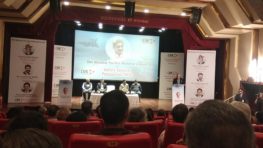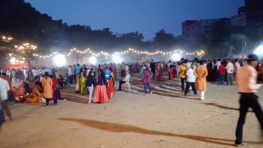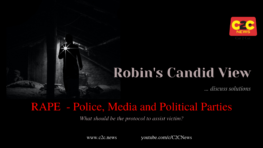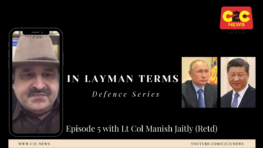
United Kingdom was overwhelmingly painted blue in the recently concluded elections. A series of parallel unconnected events over the past few months for the Conservative party and the Indian diaspora in the UK drove the two movements to support each other. On one hand after Theresa May’s approximately two year term came to an end in June earlier this year, due to her inability to deliver on Brexit – Boris Johnson stepped in to finish this job in hand. However, a hung parliament limited his ability to execute and the best way forward was to call for an early election. His focus was to be back with a complete majority to drive the Brexit mandate.
In parallel and a couple of thousand miles away in India, the government passed a law to abrogate Article 370 and thus integrate Jammu & Kashmir into India equalising rights. Kashmir has always been an emotive issue for Pakistan – they went on a rampage figuratively and literally. U.K. has a significant amount of Pakistani origin people as it’s citizens. They painted a one-sided view which tragically led to 45 MPs of U.K. primarily from the Labour Party writing to the UN seeking intervention. There was no effort by the party to engage with the British Indians to have an impartial viewpoint. Such divisive attitude would only hamper the harmony in a multicultural society and actually instigate/encourage a certain section of planning further action.
This was evident on 15th August, India’s independence day, when the Pakistanis staged a violent protest. It had the support of Liam Byrne — the Labour MP for Hodge Hill constituency, Birmingham. The response from London’s Pakistani origin Labour Mayor was also muted. It was followed by another protest in which the Indian High Commission was attacked and abused. They had planned and conducted another protest on Diwali day in London, but the impact was muted due to assertive action by Indian community. But these protests were an eye-opener for the Indian diaspora in the UK who have been traditionally supporters of the Labour Party for generations. They were aghast that Labour party co-opted and sympathised with extremist elements both jihadi and leftist.
Labour’s institutional bias against India and Indians was cited by a senior Indian-origin Labour leader, Manoj Ladwa, who quit the party for the same reasons. The Labour Friends of India also expressed their discontent over non-selection of Indian-origin candidates even in areas with a large Indian community including Leicester, Ealing, Ilford, West Bromwich and Derby. They added that Labour was disregarding the tremendous contributions of Indians in business, medicine, creative art, etc. by not giving adequate representation in the party. The tip in the iceberg was JKLF, a terrorist outfit’s support for the Labour party & Labour’s acknowledgement of the same. There was no attempt to dissociate even when warned by a former Labour leader, Dr. Neeraj Patil. These points underlined Labour’s indulgence in vote-bank politics. Hence when the elections were announced the Indian diaspora swung in to support the Tories.
Prime Minister Boris Johnson on his visit to the famous Swami Narayan temple recognised the contributions of the British Indian community and vowed to protect their interests. He also spoke of better UK-India relations post elections and a no-discrimination immigration policy. In contrast, Jeremy Corbyn’s interference on Kashmir by passing a resolution and reluctance to engage with Prime Minister Modi did not bode well with the Indian community. These factors cumulatively saw an unprecedented effort by the Indian diaspora in campaigning and canvassing for the Conservatives. Several campaigned at the ground level going door to door exhorting voters to vote. They engaged with the local candidates and organised Hustings to provide opportunity for the candidates to put forward their agenda and for the community to put forth their concerns. The final result was a washout for Labour and a resounding win for Tories. It was a historic win not seen in the last 30+ years. Indian diaspora was glad to have played its part.
Overall the elections galvanised the Indian community and helped them understand that this is a key component of British life that they need to engage in too. As economic migrants they have largely focused on well economics. Now they realise the need to be active in the community and be a part of the state craft for the sake of their Karam Bhoomi and Janam Bhoomi i.e. UK and India respectively. We hope that the release from slumber continues!
Feature Pic Credit: Wiki and Twitter




